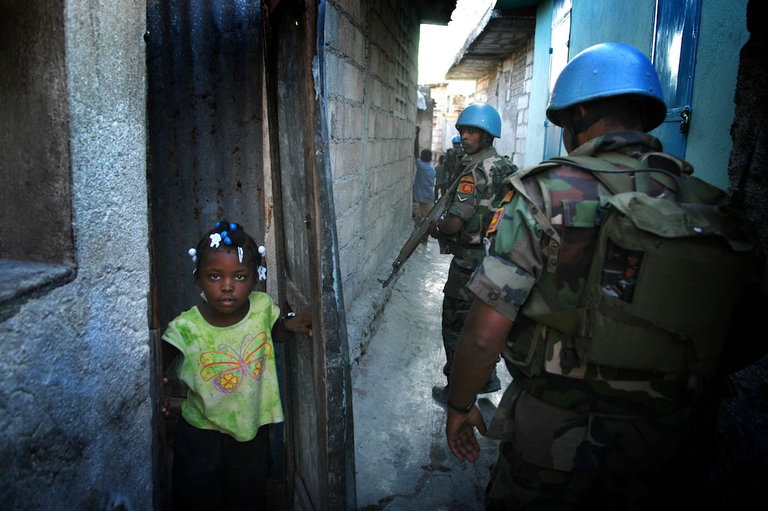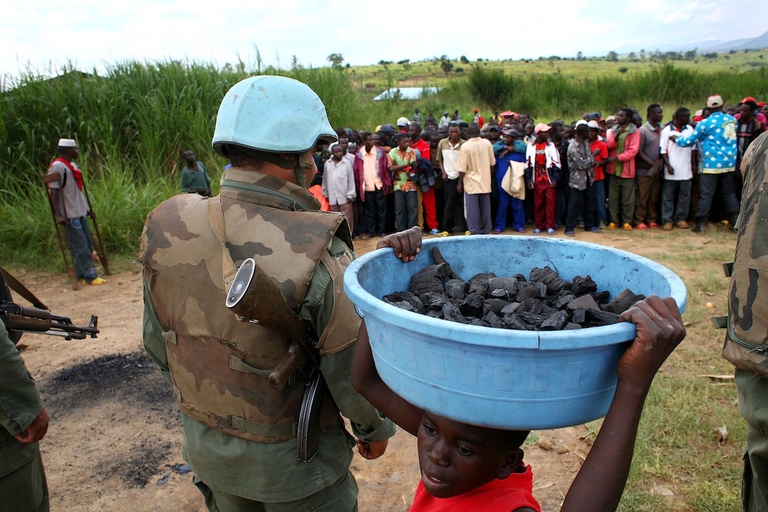
Costa Rica celebrated its first same-sex marriage when two women, Alexandra Quiros and Dunia Araya, celebrated their wedding: an “extraordinary moment”.
The UN denounced 44 cases of sexual abuse by the blue helmets so far this year. Only few of them have been punished.
The blue helmets of the United Nations assigned to protect civilians in a few African countries have committed despicable crimes. According to the UN, at least 44 cases of sex abuse by peacekeepers have been identified so far this year, of which 29 have been committed during the “Minusca” mission in the Central African Republic.
Seven other cases have been identified in the Democratic Republic of Congo, two in Haiti and the others occurred in Côte d’Ivoire, South Sudan and Mali. And the total doesn’t include the allegations that French troopers of the Sangaris mission (launched in 2013 in the Central African Republic) had to face in early April. It was the British daily The Guardian that exposed that UN employee Anders Kompass passed internal documents to the French authorities revealing minor sex abuses.
RCA : l’Onu veut prevenir les cas de viols: Jane Holl Lute, la… | #kebetu #Senegal https://t.co/Bz9y3v9P9E pic.twitter.com/clfwFRc82w
— Pressafrik.com (@Pressafrik) May 18, 2016
“What emerges – Special Coordinator on improving the United Nations’ response to sexual exploitation and abuse Jane Holl Lute stated – is scandalous. We’ve observed serious problems in the chain of command of the units involved”. For this reason, she added, “we need to create a context in which these behaviours can’t be tolerated”. Actually this problem is not news. Already in 2015 the United Nations denounced sixty-nine cases of potential sex abuse in Congo and the Central African Republic. Troopers from 21 nations have been accused.
In the meantime, the reputation of soldiers – who are sent on a mission to a country to keep peace – is irreparably undermined in the eyes of local populations as well as international community.
The situation is exacerbated by the fact that recent sex abuses have been committed by men of African origin. And according to the AFP news agency, it seems that their countries – the only ones that are juridically authorised to punish them – don’t work hard to do it. Note that inquiries have been conducted in just 26 of the 69 cases recorded in 2015. And just three troopers have been sentenced to just a few weeks in jail.
Siamo anche su WhatsApp. Segui il canale ufficiale LifeGate per restare aggiornata, aggiornato sulle ultime notizie e sulle nostre attività.
![]()
Quest'opera è distribuita con Licenza Creative Commons Attribuzione - Non commerciale - Non opere derivate 4.0 Internazionale.
Costa Rica celebrated its first same-sex marriage when two women, Alexandra Quiros and Dunia Araya, celebrated their wedding: an “extraordinary moment”.
On top of a 2.4 million dollar compensation, the indigenous Ashaninka people will receive an official apology from the companies who deforested their lands in the 1980s.
From Italy to the United States, workers in the logistics and delivery sectors are protesting to demand better sanitary conditions to protect themselves from Covid-19.
The pandemic and its restrictions are affecting everyone, without exceptions. However factors like housing, income inequalities, gender, access to technology and working conditions are influencing how people experience the health crisis.
In the midst of India’s coronavirus lockdown, two dozen people lost their lives in a desperate bid to return home: migrant labourers forced to leave the cities where they worked once starvation began knocking at their doors.
Apple, Dell, Microsoft and Tesla are among the tech companies named in a lawsuit brought in the US by the families of children killed and maimed in cobalt mining activities in the Democratic Republic of Congo.
We, the people is Survival’s 2020 calendar, which features the winners of the photography contest showcasing images of the world’s indigenous peoples.
Un violador en tu camino – the rapist is you – is an anthem protesting the impunity of gender-based violence. It began in Chile and has become a global flash mob, bringing people to the streets and resonating all over the world.
Abiy Ahmed was awarded the Nobel Peace Prize for reaching peace with Eritrea. Yet, Indigenous groups in Ethiopia’s Lower Omo Valley have been abused by security forces, a fact that the prime minister must address, says the Oakland Institute.









